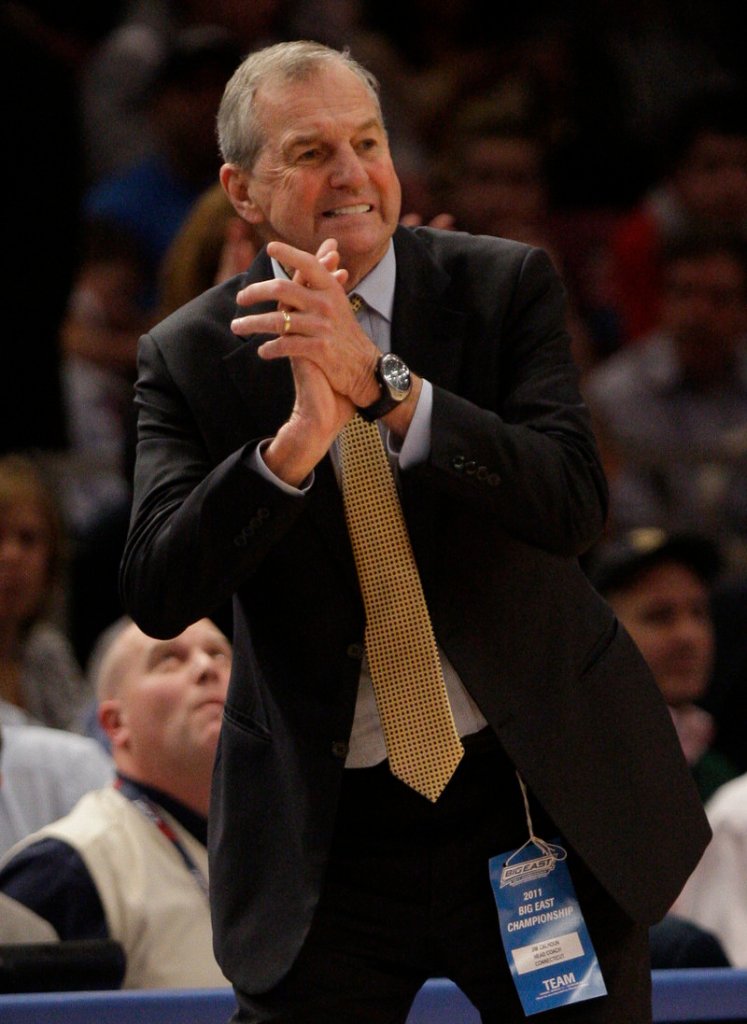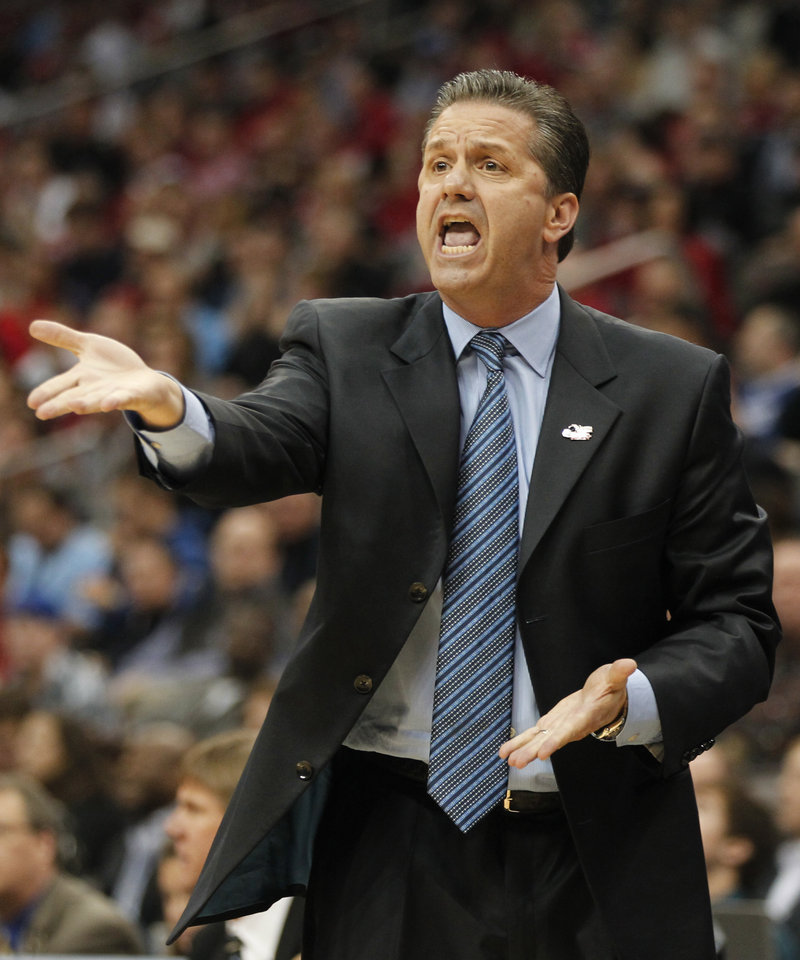HOUSTON – Nobody will dispute that they are great coaches, and the latest evidence lies in the teams they guided to this year’s Final Four.
Nobody will argue that John Calipari and Jim Calhoun are saints, either. The men on the sidelines for the Kentucky-Connecticut Final Four matchup have had their share of trouble — with each other, the programs they run and the NCAA.
They are a microcosm of everything that’s right and wrong in college basketball — a coach-driven game where good leaders can elevate programs and players to new levels but the road to success often produces its fair share of cringeworthy dealing.
Calipari leads the fourth-seeded Wildcats (29-8) against Calhoun and the third-seeded Huskies (30-9) in the second semifinal tonight. Both coaches coaxed a turnaround from their young, struggling teams to make unexpected trips to the semifinals — the third for Calipari and fourth for Calhoun.
On the eve of the game, their histories were as lively a topic as the success of their teams.
One of the first questions Calipari fielded Friday was whether he is the 2000’s version of former UNLV coach Jerry Tarkanian, a coach who won often but did it with his phone number on the NCAA’s speed dial.
“I respect everything that Jerry did — his kids, how they played, all those things,” Calipari said. “But, no, I think I’m the 2011 John Calipari. I don’t know what that means, and I hate to talk in the third (person). But I am who I am.”
Unlike Calhoun, Calipari has no qualms about how many of his players have had startlingly brief college careers and, indeed, views that as something of a feather in his cap. He recruits the best players, replaces them just as quickly — goodbye John Wall, hello Brandon Knight — and gets them to accept different, sometimes uncomfortable roles to come together as a team.
He is back in Houston, where three years ago he won two games at the regional to lead Memphis to the Final Four, only to leave that school a year later, just as the program was running into NCAA problems involving the recruitment of Derrick Rose.
Calipari’s first Final Four visit, with UMass in 1996, also has been scrubbed by the NCAA. That led to another tongue-in-cheek question: What’s it like to be in your first Final Four?
“I don’t deal with that,” said Calipari, 52. “We’ve been here three times. Those players played those games and did what they were supposed to. I’m so proud of what they’ve all accomplished.”
He says this without apology. Though his schools suffered, Calipari was not found at fault in either of the NCAA probes.
The so-called problems between Cal and Cal began during those UMass days, when the coaches were on top of each other in neighboring states — one trying to protect his turf and the other trying to carve out his own. Things got testy during the recruitment of Marcus Camby, who wound up choosing UMass and whose issues there eventually landed the school on probation.
They admit they got off to a rough start.
“You’re right on top of each other, that it is a competitive environment,” Calipari said. “Our radio shows and television shows are in each other’s states, in our cities. That’s how it is there.”
Calhoun, 68, lightheartedly reprised the complaints he raised more than a decade ago about Calipari — a Pittsburgh native trying to muscle his way through New England — but made it clear the enmity has died down.
As magical as this season has been, it also has been a drain on Calhoun. This season at UConn was played under the shadow of an NCAA investigation into the recruitment of a player named Nate Miles, who wound up expelled from school before playing a game.
The probe — ugly, but the first in Calhoun’s 25 years at UConn — resulted in sanctions that include Calhoun’s suspension for the first three games of next season. If, that is, the coach decides to return. He has had a slew of health problems over the past eight years and now enjoys spending time with his grandchildren as much as the players he coaches.
“I’m comfortable with my university, how they handled it, how the NCAA handled it,” Calhoun said. “I didn’t say I agreed with everything. But I was in charge of the program, the program made mistakes. When it was adjudicated, it was adjudicated, and it’s over as far as I’m concerned.”
Send questions/comments to the editors.




Comments are no longer available on this story